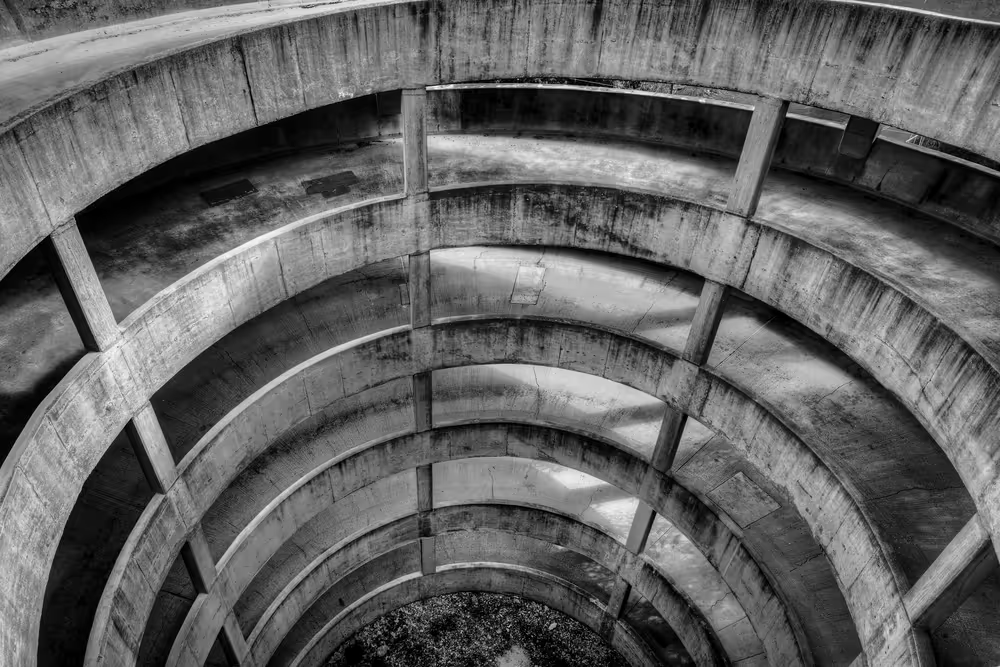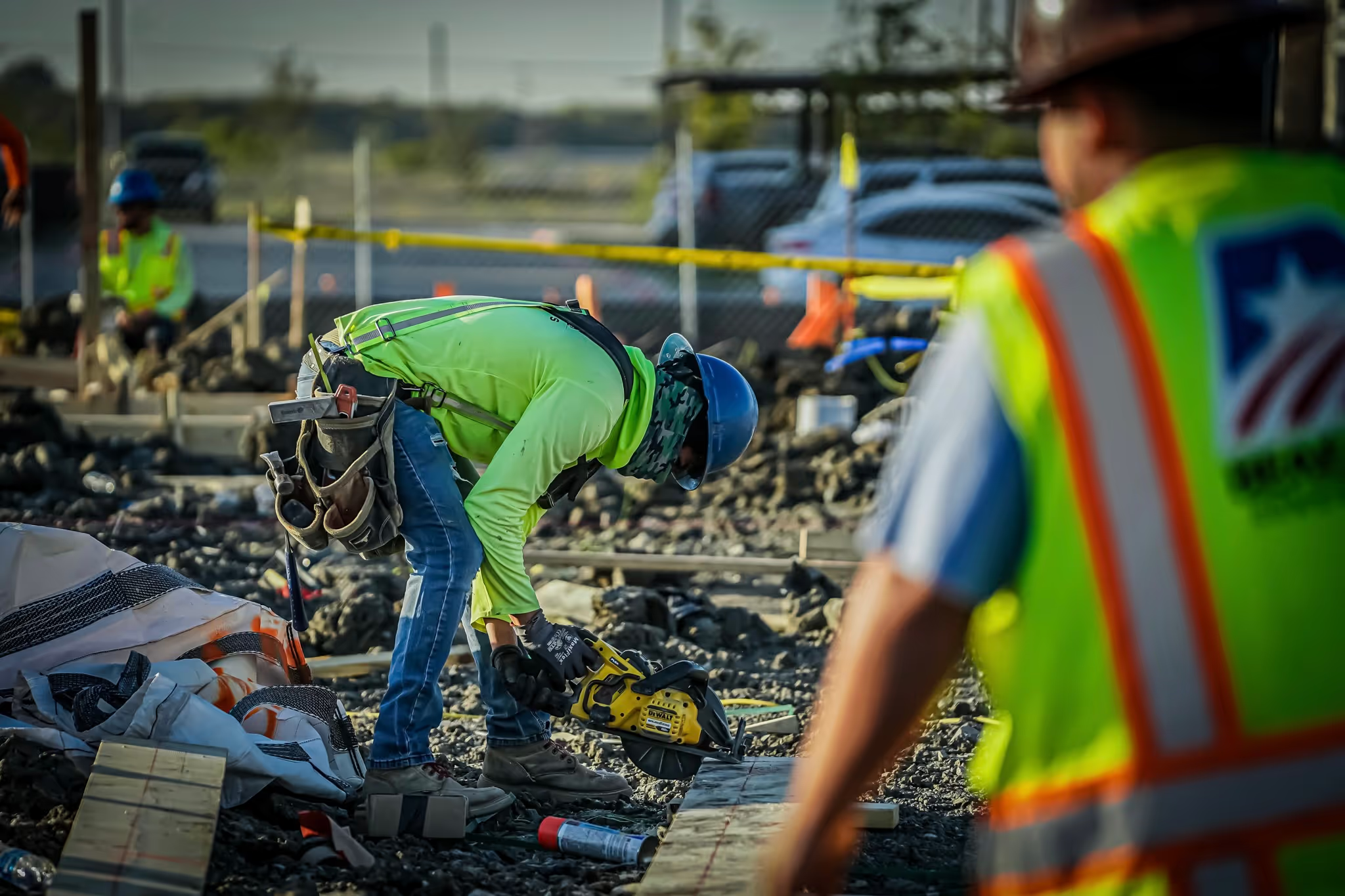The Role of Concrete Sitework and Preparation in Successful Garden-Style Development
When it comes to garden-style multifamily concrete projects, success starts long before the buildings go vertical. One of the most essential elements is something residents may never see: the concrete sitework and preparation that form the foundation of the entire community. At Beacon Concrete, we specialize in laying the groundwork—literally—for dependable, long-lasting, and code-compliant garden-style community construction.
So, what exactly goes into this behind-the-scenes process, and why does it matter so much in multifamily apartment construction? Let’s dig into how professional sitework and preparation ensure a strong, efficient, and cost-effective project from day one.
Why Sitework Matters in Garden-Style Development
Concrete sitework refers to the preparation of the land and the installation of flatwork, like foundations, sidewalks, curbs, and slabs, before vertical construction begins. For slab-on-grade concrete construction, which is commonly used in garden-style multifamily developments, the precision and quality of sitework make or break the project. Here’s why this phase is so critical:
- It ensures proper water drainage and grading.
- It lays the groundwork for structural stability.
- It supports plumbing, electrical, and utility lines.
- It keeps the project on schedule and within budget.
According to the Portland Cement Association, poor site preparation is a leading cause of long-term concrete failure. This makes expert execution not just a preference, but a necessity.
Key Components of Concrete Sitework for Multifamily Development
At Beacon Concrete, our approach to concrete sitework for multifamily development follows a detailed and strategic process to ensure the success and longevity of each project. It all begins with clearing and grading, where we remove vegetation, rocks, and debris to create a clean and level foundation. This initial step is critical for setting the stage for all that follows.
Next, we conduct soil testing and compaction to verify that the ground beneath the future slab is both stable and properly compacted. This reduces the risk of future settling that compromises the structure. To protect the building from water-related issues, we implement drainage and erosion control measures that redirect rainwater and runoff away from the foundation, safeguarding the integrity of the structure over time.
With the site properly prepped, we move into formwork and layout, where precise framing is used to shape and define the locations of slabs, driveways, and sidewalks. Then comes subbase preparation, which involves laying down a supportive layer of gravel or crushed stone beneath the slab. This subbase helps evenly distribute structural loads and prevents moisture from collecting underneath.
To enhance durability, reinforcement placement is performed using rebar or wire mesh. This gives the slab added strength and resistance to cracking under pressure. Finally, we proceed with pouring and finishing, carefully applying and smoothing the concrete to match project specifications and provide clean, level surfaces.
Each of these steps plays a vital role in creating a strong, durable foundation for your garden-style multifamily concrete project. Through expert planning and execution, Beacon Concrete ensures lasting performance and quality in every build.
The Benefits of High-Quality Concrete Preparation
When concrete sitework is done right, the benefits extend far beyond the construction site. Here’s what developers and property managers expect from well-executed slab-on-grade concrete construction:
- Faster Construction Timelines: Precise prep work avoids delays later in the project.
- Lower Long-Term Maintenance: Quality slabs and curbs reduce the risk of cracks, water damage, and uneven surfaces.
- Improved Safety and Accessibility: Smooth, compliant sidewalks and ramps enhance mobility for all residents.
- Increased Property Value: A solid foundation contributes to lasting curb appeal and performance.
- Reduced Project Risk: Professional sitework helps catch and solve issues early before they affect the structure.
These benefits make concrete sitework one of the smartest investments in any garden-style community construction plan.
Why Partner with Beacon Concrete?
Beacon Concrete brings years of expertise in multifamily apartment construction, with a proven track record in delivering high-quality, dependable sitework and flatwork. Our team understands the unique needs of garden-style developments and works closely with developers, architects, and engineers to ensure every inch of concrete is expertly planned and installed.
We take pride in our attention to detail, strict adherence to safety standards, and ability to stay on schedule, no matter the size or complexity of your project.
FAQ: Concrete Sitework in Garden-Style Developments
Q: What is slab-on-grade construction, and why is it used in garden-style apartments?
A: Slab on grade is a type of foundation poured directly on the ground, ideal for low-rise, spread-out developments like garden-style communities. It’s cost-effective, fast, and durable.
Q: How does sitework impact construction schedules?
A: Proper site preparation prevents future delays. It allows follow-up trades (framing, plumbing, etc.) to work more efficiently and helps avoid costly rework.
Q: Does poor sitework lead to structural problems?
A: Yes. Improper grading, poor compaction, or drainage issues cause foundation cracks, shifting, or water damage over time.
Q: How long does concrete sitework typically take for multifamily builds?
A: Timing depends on the size and scope, but Beacon Concrete helps keep sitework on track through strategic planning and efficient execution.
When it comes to garden-style multifamily concrete projects, what lies beneath the surface is just as important as what’s built above it. With proper sitework and preparation from Beacon Concrete, you’re not just laying concrete—you’re laying the foundation for success.





